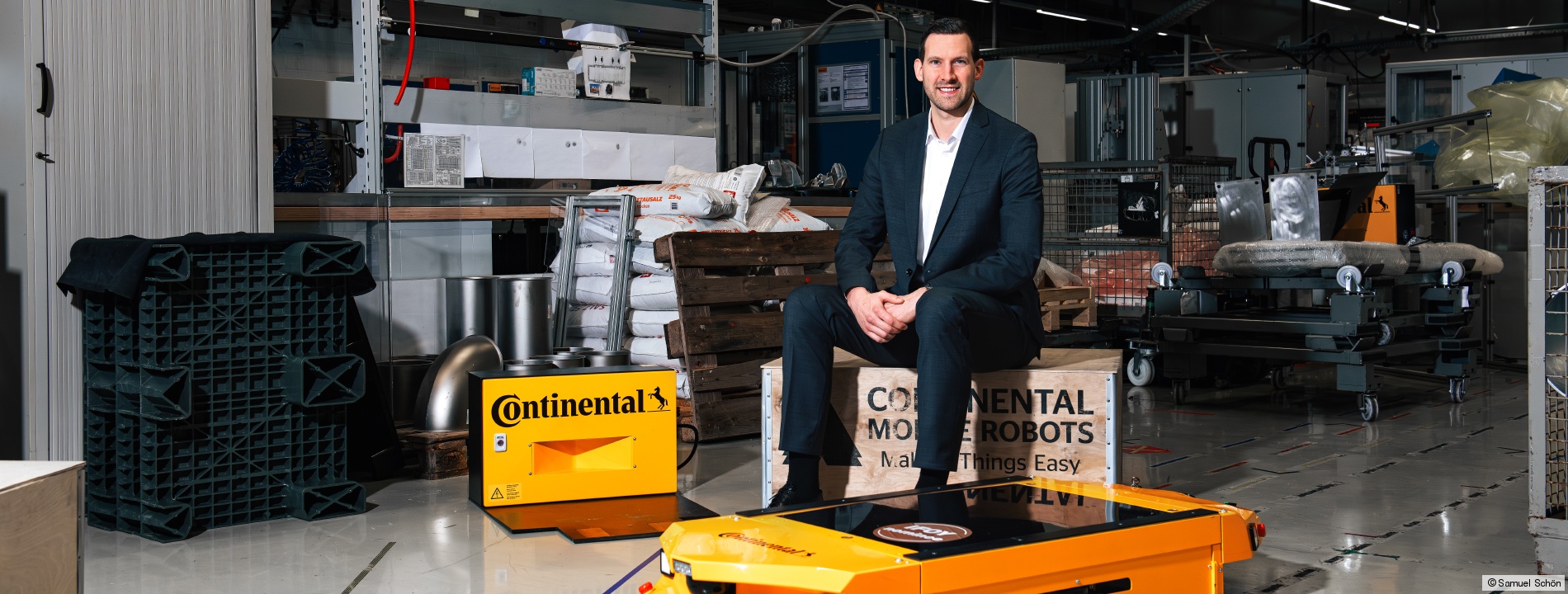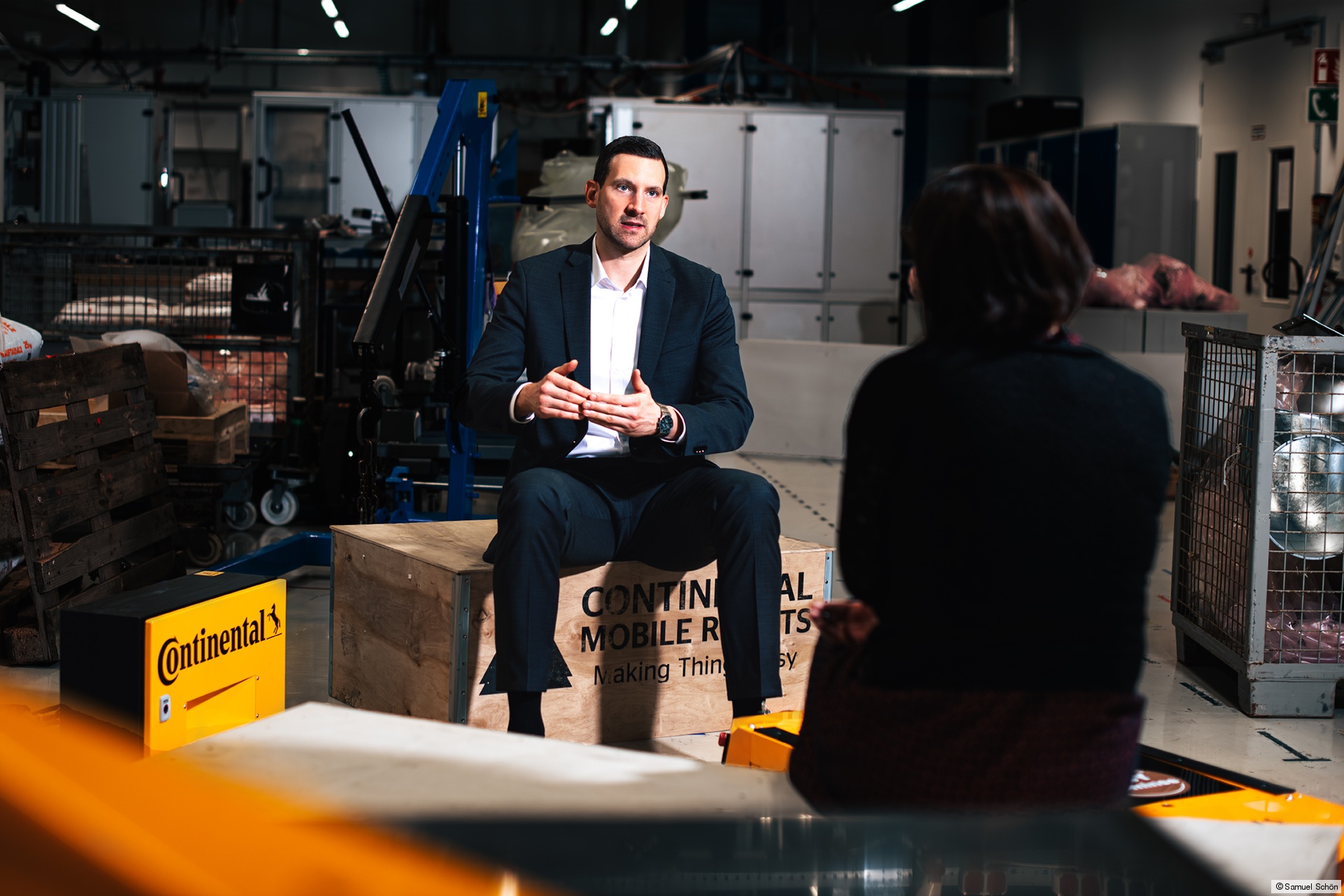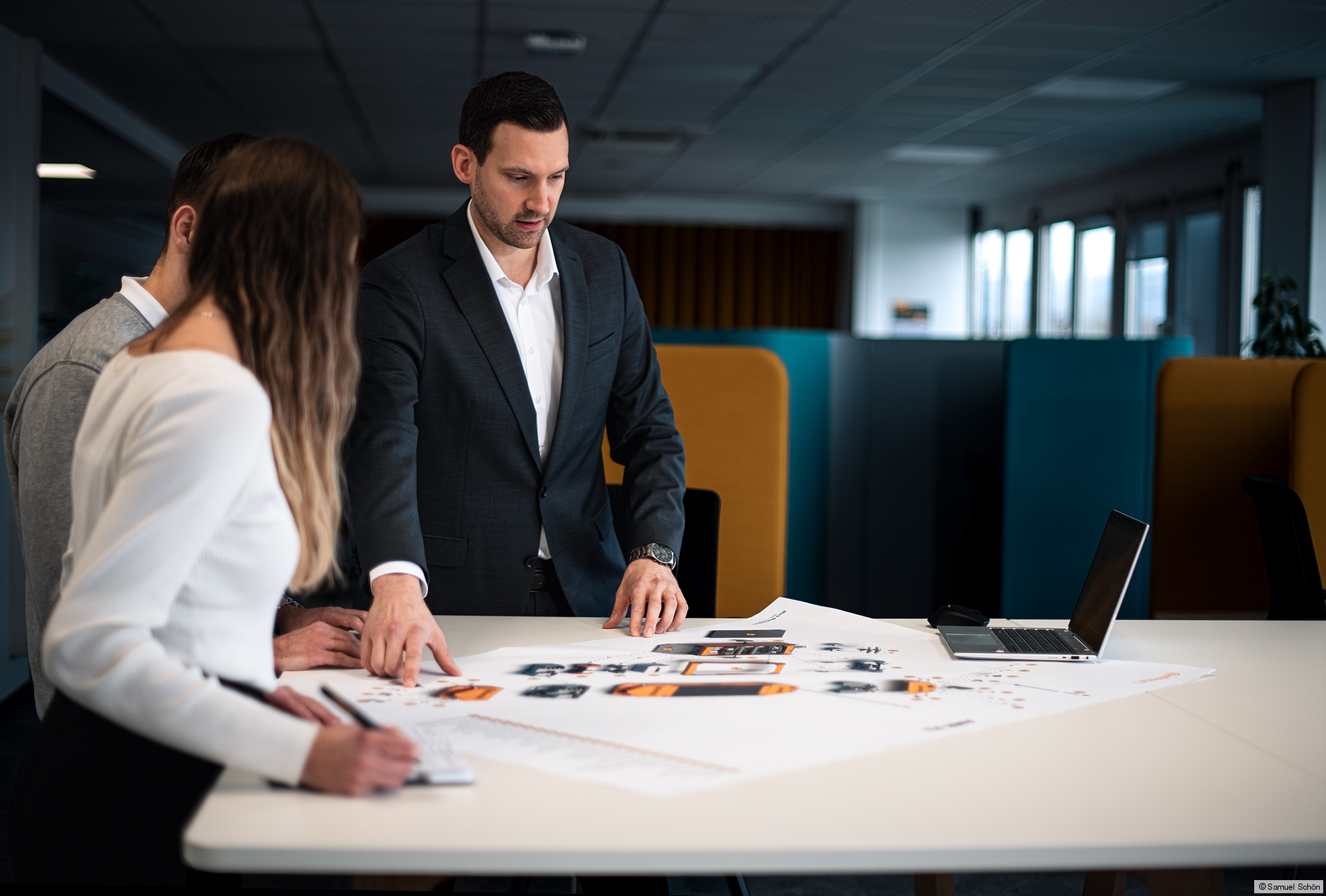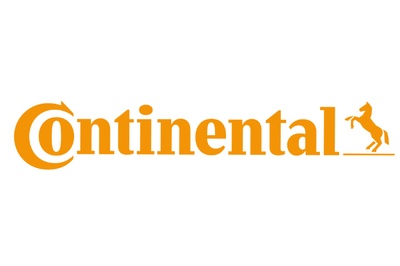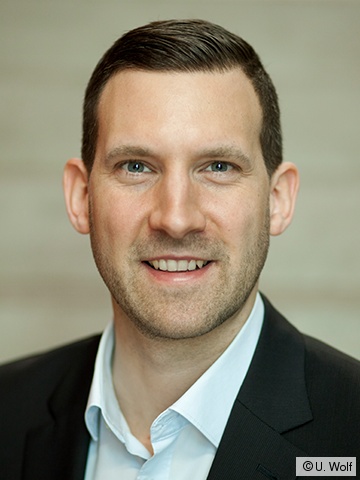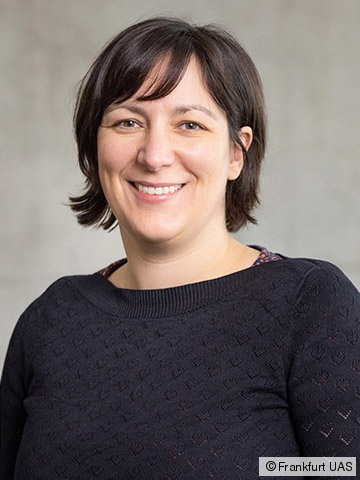Teaching & Research
Winter Semester
- Lean Management (Bachelor – BW, IBA)
- Lean Management Exercise (Bachelor – BW, IBA)
- Practical case project - production management and logistics (Bachelor - BW, IBA)
Summer Semester
- Lean Management (Bachelor – BW, IBA)
- Lean Management Exercise (Bachelor – BW, IBA)
- Production Management (Master – Industrial Engineering)
- Change Management in the Mobility Industry (Master – Global Logistics)
- Agile leadership (MBA – leadership: diverse – innovative – sustainable)
Cooperative Courses
- Mobility of the future (Technische Hochschule Mittelhessen, Bachelor – Dual Studies Plus)
- The engineer as manager (Technische Hochschule Mittelhessen, Bachelor – dual study plus)
- Bornemann, T. (2023): Der Weg zur Smart Factory: Mobile Transportroboter als Schlüsselelement, SYNAOS Report – Zukunft der Intralogistik, SYNAOS GmbH
- Bornemann, T. (2023): Beyond VDA 5050 - Mastering the Challenge of Managing Diverse AMR Fleets, Verband Deutscher Maschinen- und Anlagenbau e. V.
- Bornemann, T. / Kotwal, AJ (2023): Driving Success with KINEXON Fleet Manager: How Continental AG Achieved a Remarkable 262% Return on Investment in their AMR Operations, KINEXON GmbH
- Bornemann, T. / Biermeier S. (2023): Strategiepartnerschaft für Smart Factory der Zukunft, Fachzeitschrift Staplerworld FTS-/AGV-Facts Informationsplattform für Autonomen Transport, TechTex-Verlag GmbH & Co. KG
- Bornemann, T. / Miller, B. (2023): White Paper Autonomous Mobile Robots for Intralogistics AMR IL 1200, Continental AG
- Bornemann, T. / Miller, B. (2023): Case Studies – Autonomous Mobile Robots (Continental Plants Rheinböllen, Changshu, Zvolen), Continental AG
- Bornemann, T. (2023): Tech-Matinee zu autonomen mobilen Robotern (AMR), move Tech Matinee, Continental AG
- Bornemann, T. / Hüls, A. / Rauguth, D. (2022): Software als Startpunkt einer Reise hin zur agilen Organisation, changement! Fachmagazin, Handelsblatt Fachmedien GmbH
- Bornemann, T. / Lommatzsch, A. (2021): Digitale Kompetenz von Führungskräften im New Work Style, Continental Leadership Lab, Continental AG
- Bornemann, T. (2021): Botschafter verleihen Continental ein Gesicht, Continental AG
- Bornemann, T. / Fritz, F. (2021): Operational Excellence als Wegbereiter intelligenter Automatisierung, IT&Production - Industrie4.0, TeDo Verlag GmbH
- Bornemann, T. (2021): Continental Ambassador - Expertise teilen, unsere Zukunft gestalten!, Continental AG
- Bornemann, T. (2021): How T-Shaping Increases Software Excellence & Collaboration, Continental AG
- Bornemann, T. (2021): Tech Matinee mit den Experten von T-Shaping (Continental Automotive), move Tech Matinee, Continental AG
- Bornemann, T. / Zschockelt, F. (2021): Wie T-Shaping Softwarekompetenzen und Teamwork steigert, Fachjournal move - the technology hub, Continental AG
- Bornemann, T. (2021): Maximum support for Students in their individual Learning Process with an innovative Lecture Concept integrating digital Media, Frankfurt UAS International Newsletter, Frankfurt University of Applied Sciences
- Bornemann, T. / Zschockelt, F. (2021): Software-Excellenz als Erfolgsfaktor für die Zukunft der Mobilität, changement! Fachmagazin, Handelsblatt Fachmedien GmbH
- Bornemann, T. (2021): Beförderung eines kontinuierlichen Lernprozesses durch Entwicklung und Integration von Screencasts und Lernstandskontrollen in das Lehrangebot – didaktisches Konzept und Aufwände, Podcast - Digitale Kaffeerunde, Digital gestütztes Lehren und Lernen in Hessen (Hessisches Ministerium für Wissenschaft und Kunst)
- Bornemann, T. (2020): Ganzheitliches Lernkonzept unterstützt durch digitale Medien, Podcast - Digitale Blitzlichter, Digital gestütztes Lehren und Lernen in Hessen (Hessisches Ministerium für Wissenschaft und Kunst)
- Bornemann, T. / Zschockelt, F. (2020): Agiles Lernen als Erfolgsschlüssel im Umfeld der digitalen Transformation, Frankfurter Allgemeine Zeitung Personaljournal, F.A.Z. BUSINESS MEDIA GmbH
- Bornemann, T. (2020): Students at Frankfurt UAS: Shaping the Future of Mobility with Practical Knowledge, Frankfurt UAS International Newsletter, Frankfurt University of Applied Sciences
- Bornemann, T. / Roth, S. (2020): VED R&D Leaders in Bangalore/India take Ownership for Continuous Improvement, Continental AG
- Bornemann, T. (2019): Training & Competency management to go live at Business Unit Vehicle Dynamics, Fachjournal Main Continental, Continental AG
- Bornemann, T. (2018): Scaling up Competencies within R&D Vehicle Dynamics, Continental AG
- Bornemann, T. (2017): Industrial Waste Heat Utilization, Spannungsfeld zwischen Abwärmenutzung und Kraft-Wärme-Kopplung in der produzierenden Automobilindustrie, Kassel University Press
In Conversation with Prof. Dr.-Ing. Tobias Bornemann
Mr. Bornemann, what is a cooperative professorship?
Practical relevance is the key to motivation and success, as learning content becomes tangible for students. Through my cooperative professorship, I can combine the combination of theory and practice: On the one hand, I research and teach half a professorship on the subject of production and lean management at the Frankfurt UAS; on the other hand, I work at Continental AG in the area of autonomous mobile robots and am responsible for product management for intralogistics in the context of Industry 4.0 and Smart Factory.
At the university I am active in various teaching formats in the areas of production management and lean management. I give lectures and offer mentoring on the topic of leadership. I also actively research and initiate my own research projects in cooperation with Continental and other partners.
Why did you choose this career format?
Even during my own studies, it was important to me to understand the connection between theoretical specialist knowledge and operational business and to develop practical skills. It was therefore clear to me that I wanted to give young talent an insight into my everyday work. I am convinced that a direct practical connection during the academic training process is helpful in understanding the requirements and processes within a company. The intensive interaction and professional discourse with the students creates a creative atmosphere. The constantly new perspectives also expand my horizons, inspire me for my job and are an exciting change from everyday business life. Through intensive collaboration with universities and the resulting knowledge transfer, networks are created between science and practice, from which long-term and strategic partnerships emerge. I see my cooperative professorship as an absolute enrichment and would like to be a personal contact for students in order to establish a connection to an international technology group.
How does the cooperative professorship differ from the usual UAS professorship?
A cooperative professorship is a half-time position at the university. In addition, you work in a private company, an association or an authority. I find this combination to be an absolute enrichment, as theoretical content has direct application relevance in teaching and research and can be validated with practical experience. According to the scope of the position, I am involved in research and teaching and am responsible for lectures, seminars and projects like all other colleagues. I freely choose the focus of my research and acquire and lead appropriate projects. As with a usual UAS professorship, I can hire research assistants and assistant scientists. I do this specifically in the Doctoral Center for Mobility and Logistics, where, together with my colleagues, I accompany doctoral students during their doctorate.
How do you combine your professorship with your commitment to the practice company? How do you organize yourself?
What is crucial is that the subject areas of teaching and research have the same orientation as my activities at Continental AG. As Head of Product Management, I am responsible for mobile transport robots and the further development of mobile robotics in intralogistics. I lead an interdisciplinary team and also supervise students who complete their internships with us or write their final theses. I let my activities at Continental and at Frankfurt UAS mesh together like gears. I can easily integrate fixed and recurring appointments, such as courses, because I plan and place them in advance. Continental enables this interlocking, which gives me a certain degree of flexibility within a defined framework.
How does your practice, Continental, support you?
Continental supports me maximally. There is an ambassador program that encourages employees to represent Continental outside the company. This works very well. In addition, my colleagues are innovative and open to change. The added value for the university is immense: Through my work at Continental, I can offer many excursions to research, development and production locations. I also carry out practical case projects in which students develop and implement innovative solution concepts. Continental also regularly invites students to take part in the Continental Tech Days, among other things, where experts explain current development trends and make technologies tangible. But Continental also benefits from the integration: We constantly employ students who complete and carry out their internships, working student positions or theses with us. My colleagues very much welcome this direct contact, as the competition for talent is fierce. I have also already been able to get several of my colleagues to give guest lectures. Mobile robotics projects in which the university and Continental work together on research questions and generate findings are also working extremely well. This creates added value for both sides.
What does your collaboration look like with colleagues at the university who hold full-time professorships?
Before starting my cooperative professorship, I had already been a lecturer and supervised lectures and seminars for several years, so the university environment in Frankfurt was not entirely new to me. I was welcomed with open arms right from the start and immediately found points of contact with my colleagues to become active together, e.g. in joint lecture formats, excursions or research approaches. Together with three professors, I set up a learning factory at the House of Logistics and Mobility (HOLM) in which logistics processes can be experienced and which contribute to motivation and learning success. I was also integrated into the development of the Industrial Engineering degree program and am working on its accreditation in an interdisciplinary team of engineers and economists. I would particularly like to highlight the Research Lab for Urban Transport (ReLUT), where I feel very comfortable thematically and personally. But the Mixed Leadership Academy also openly integrated me right from the start.
If you could wish for one thing for the cooperative professorship, what would it be?
I would like to see many more cooperative professorships. This allows us to build bridges to numerous practical partners and build an interdisciplinary network from which universities and companies benefit equally. If you think a step further, you could also bring participating companies together through a cooperative professorship and use synergies. Ultimately, it's always about the question of how to combine science and practice and develop solutions that benefit everyone involved - especially the students, who benefit most from application-oriented teaching and direct contact with potential employers.
Thank you for the interview!
Practice Partner
„As an industrial company with a focus on research and development activities, we are always very interested in an exchange with universities and representatives from science. As part of the PROFfm cooperation with the Frankfurt University of Applied Sciences, we can promote this exchange and benefit from each other's expertise, especially in the field of engineering."
Linda Lennecke, Location Specialist at Continental

